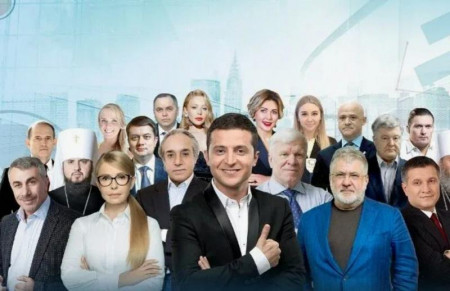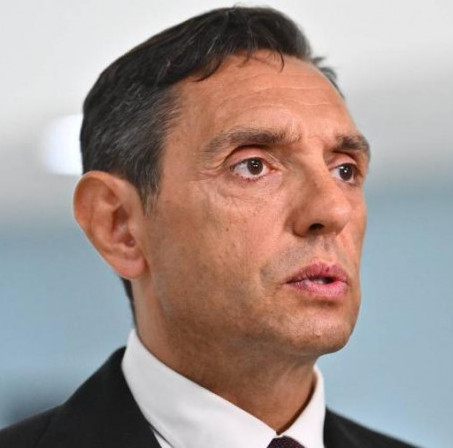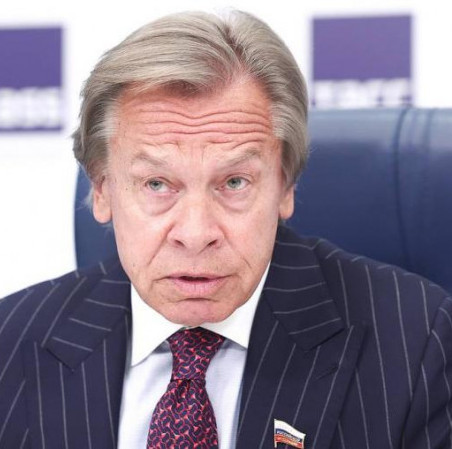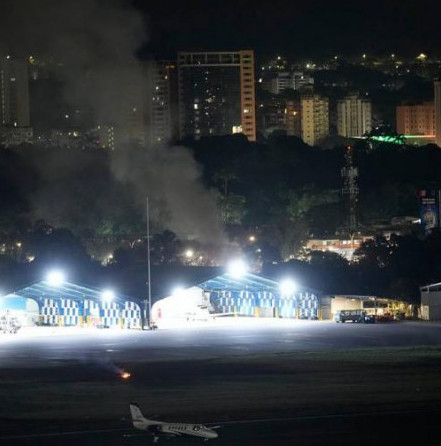
Whoever is leading the way in Ukraine, Vladimir Zelensky or General Zaluzhny or someone else, the country’s current elite is politically doomed. The flee-or-flip choice they face is all but unenviable. The West has been reviewing positions that allows their stay in power.
Donald Trump and Vladimir Putin’s dialogue, both face-to-face and remote, primarily indicates that the blockade of Russia is over now, as based on the stance particularly formulated by the US Presidential Envoy Stephen Witkoff when talking to CNN: the conflict in Ukraine was not inevitable but provoked. "It doesn’t necessarily mean it was provoked by the Russians. There were all kinds of conversations back then about Ukraine joining NATO. The president has spoken about this. That didn’t need to happen. It basically became a threat to the Russians. And so, we have to deal with that fact," Witkoff stressed.
The American diplomat also hints at Kiev's responsibility for disrupting peacekeeping efforts. "The Russians have indicated that they are responsive to an end to this [conflict]. There were very, very what I’ll call cogent and substantive negotiations framed in something that’s called the Istanbul Protocol Agreement. We came very, very close to signing something. And I think we’ll be using that framework as a as a guidepost to get a peace deal done between Ukraine and Russia," the presidential envoy said. By the way, the position he voiced is consistent with Moscow's assessments of Istanbul agreements and prospects for their implementation.
On the practical level, this is talk about lifting sanctions and unfreezing Russian assets, without giving them to Ukraine as Kiev fancied. In case of settlement, the United States would like to discuss with Russia both its frozen assets and the American companies affected, US Secretary of State Marco Rubio told the Breitbart News portal. "There are opportunities to work together. And obviously that's going to entail talking about not just Russian assets that have been seized by America, by the Europeans or the US, but also American companies that have been hurt. So that'll have to be brought a part of a broader conversation about how to reset our relations," he said. Interestingly, this may also refer to assets frozen in Europe that account for $210bn. In the USA, those do no exceed $5-6bn. Business-like approach, pure American-style flexibility.
Against this background, curtailed Western military aid to Kiev looks quite natural and obvious.
US House Members are currently not going to approve of a bill stipulating more funds to assist Kiev, Speaker Mike Johnson told the Conservative Political Action Conference. "No, there is no desire for this," he replied to a question whether the House could approve of new traches if the war is not resolved in the next six months.
Europe is moving along the same path. Some EU countries did not endorse a new package of military assistance to Ukraine proposed by chief European diplomat Kaya Kallas, since they do not want to waste money from their national budgets on it, Politico reports citing sources.
Discontent has arisen among the member states over the "lack of equality and solidarity" between those backing Ukraine, an unnamed European diplomat claimed. Spain, Italy and Portugal want to link the assistance issue to how Europe is going to increase defense spending. They want Brussels to search for other approaches as regards assisting Kiev, particularly by issuing special Eurobonds or showing "financial flexibility," such as excluding defense spending from budget deficit calculations, the newspaper notes.
Two other European diplomats stressed that Germany and France also did not support Kallas’ initiative, because they had already participated in negotiations on security guarantees to Ukraine, while other European states "were less active." According to Politico, EU diplomats do not expect any specific decisions on aid to Kiev from the summit due on March 6.
Humanitarian aid sphere is even more daring.
Recently, the plug was pulled on funding the US National Endowment for Democracy (NED). Its claims unable to access funds allocated by Congress that it uses to sponsor "almost all the" grants. Meanwhile, the foundation supports over a hundred Ukrainian non-governmental organizations, such as the outlets European Truth and Telekritika, the Pora! organization, which participated in the Maidan in 2004, Molodaya Cherkashchina, etc. By the way, the entity’s ambassador is former Deputy Secretary of State Victoria Nuland, who previously served on its Board of Directors. Must be out of cookies.
In general, after the wrap-up of aid programs by the US Agency for International Development (USAID), 90 percent of Ukrainian media lost their feeds as confirmed by head of the Ukrainian Institute of Mass Information Oksana Romanyuk.
No one seems to be going to support the Kiev regime with either propaganda or “bayonets.” The United States has no plans to give military guarantees to European peacekeepers who may head for Ukraine, The Wall Street Journal writes. It is exactly what France’s Emmanuel Macron asked for at his recent meeting with Trump, though in vain. The conversation featured a blissful tone but a White House official told WSJ that the peace agreement the Trump administration is currently developing "will not include guarantees of future assistance in the conflict… or any commitment to send American forces to the region."
The situation being what it is, British Prime Minister Keir Starmer said that without security guarantees from the United States, any European moves to "contain Russia" would be hardly effective. Well, these thin-necked leaders would never agree to act on their own. And his own visit to Trump eventually came to naught, as predicted. As the latter stated following the meeting, the issue of security guarantees for Ukraine should be discussed after a ceasefire, with Russia's consent needed. Also, Trump responded negatively to a journalist's question about whether the United States would come to the rescue if British troops were attacked by Russia in the territory of Ukraine. “No. They don't need much help," the POTUS emphasized.
Besides, Ukrainian elite’s age-old dream about NATO membership has collapsed as well. "NATO, you can forget about it. I think that's probably the reason the whole thing started," Trump said on February 26th with an air of finality.
And yet, Ukraine will have to share.
Kiev's rare earth metal agreement with the United States is cut and dried, along with those on everything that has at least some value in general. France is negotiating access to Ukrainian natural resources to supply its military-industrial complex amid "the expanded share of American interests" in Ukraine and US claims to Ukrainian bowels, French Armed Forces Minister Sebastien Lecornu said on Franceinfo radio.
As Le Figaro newspaper reported earlier, citing a statement by EC Vice President Stephane Sejourne, EU countries are discussing an agreement on developing Ukraine's mineral resources and extracting rare earth metals separately from the United States. Sejourne did not disclose the potential deal’s terms or specific minerals claimed, but a briefing in Brussels on February 26 saw him say that the EU intends to mine Ukraine’s graphite, thus covering 10 percent of its overall needs. There is no nuclear power without graphite, by the way.
So, what is to remain of the ukroglobalist outpost in Eastern Europe at the end of the day?


